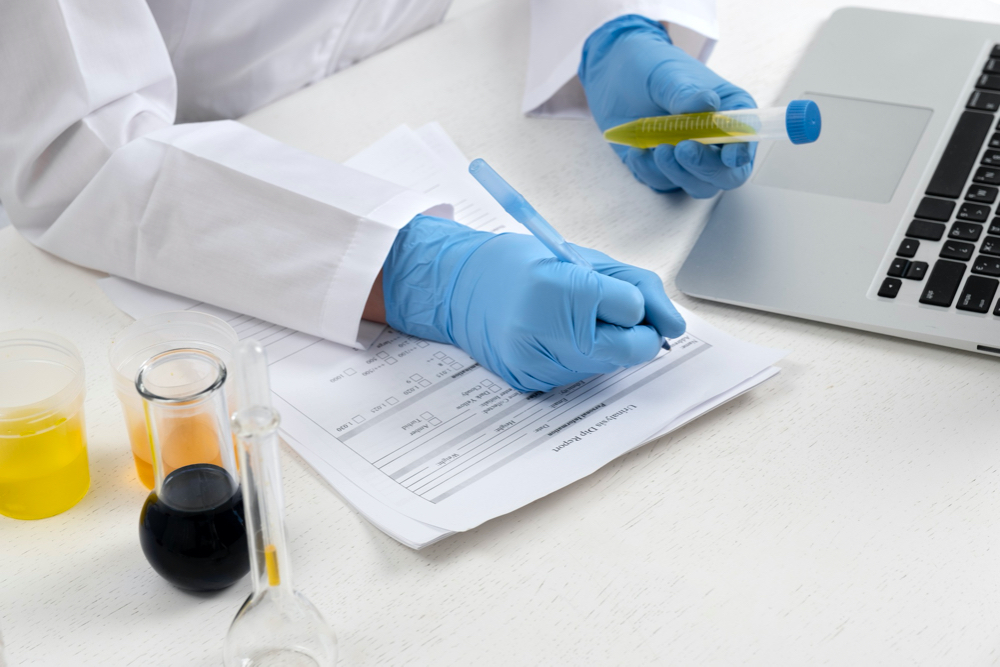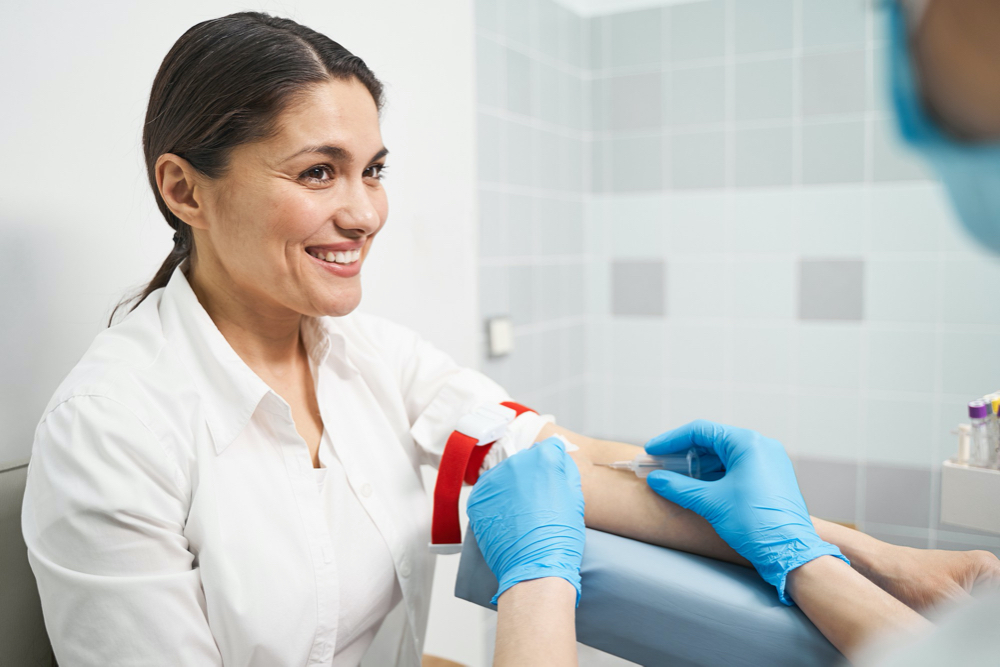- Fast results
- 4,000+ locations
- 4.8 star rating
Need Help? (888) GET LABS

The best drug screening option is accurate and convenient, regardless of why you decide to undergo a drug test. A blood drug test and a urine drug test function similarly in that they both detect the presence of certain drugs. They differ, however, in terms of the procedure and the window of detection for the last time drugs were used. Find out when you should choose one over the other as you read on.

Blood drug tests differ from urine drug tests based on how they are conducted, the timeframe for detection, and the accuracy of the results. Although one may be better suited for certain circumstances, it does not negate the effectiveness of the other.
Naturally, in a blood drug test, you’ll be requested to provide a blood sample. Despite the emergence of at-home drug test kits that require the same sample, it is still recommended to undergo blood screening for drugs in an accredited laboratory. In this way, a licensed phlebotomist carries out the collection process, ensuring accuracy and safety.
Plus, following such protocol ensures that the sample has truly come from the actual individual subjected to testing, therefore preventing fraud.
In a urine test, obviously, you won’t need professional assistance. The phrase “pee in a cup” is linked directly to this test, wherein all you have to do is supply the urine in a prescribed container.
The window of detection for drug testing through a blood sample is relatively shorter than for a urine test. The reason for this is that within minutes to hours of consuming a substance, the compounds contained within it are metabolized by the liver and expelled into the body. It will take time for these compounds and the drug’s metabolites to be processed and filtered out in the kidney, allowing them to get mixed with urine.
Blood tests are deemed more accurate than urine tests and other forms of drug screening, especially if an immediate result is required.
In a drug blood test, the actual compounds or parent drugs are targeted for identification and confirmation from the bloodstream. Meanwhile, urine tests often detect metabolites, which are byproducts produced when the drug is metabolized in the liver.
| Pro tip: Drug tests often come as standalone procedures for a particular drug. For example, you can order a specific test to screen for amphetamines or a cocaine urine test. See what other substance screening you can order from our complete list of drug tests. |

The blood drug test is ideal for detecting recent drug use. It’s a popular means of drug screening in a legal setting where an individual has to prove using drugs or lack thereof.
Keep in mind, however, that this test is invasive as blood will be collected. That said, the procedure must be performed by a professional wherein the sample for drug testing will be handled properly.
A urine drug test is far more convenient than a blood test and is favorable when taking random drug screening or as a requirement for employment. It’s also a great option if there’s a need to detect drug use from several days to a few weeks.
Another advantage of a urine drug test is that you can purchase it in bulk and distribute it to a group of people. This setup is ideal for mandatory drug screening among companies and teams alike. Of course, the sample will be analyzed in a laboratory to maximize accuracy.
| Pro tip: You can order a urine drug test online. Check out our drug monitoring panel, which includes some of the most commonly tested drugs, such as opiates, cocaine, marijuana, oxycodone, and more. |
Outside the urine drug test vs the blood drug test comparison are other forms of lab screening and monitoring that can be preferable for specific cases. Here are the three other types of drug tests that you may come across with.
| Pro tip: Drug testing, in general, is not just for legal matters or as part of a background check. In fact, rehabilitation centers and medical facilities ask recovering patients to monitor drug circulation in their system through these tests, especially during the early stages. And if you’re wondering about the adverse impact of drug addiction, check out our guide on its irreversible effects on a person’s health. |

A urine test is more convenient for employers and other organizations that mandate drug testing than a blood test. One advantage is that the procedure is non-invasive and it can be done by anyone. In addition, it is more cost-effective, and many urine tests can be ordered in bulk, making it ideal for company-wide drug screenings.
The window of time for detection depends on the drug test, frequency of use, as well as the type and amount of drugs consumed. Urine tests, for example, can detect drugs taken within days or weeks prior to testing. Blood tests tend to have a shorter window of detection, spanning from hours to days. Similarly, chronic users of drugs such as marijuana can test positive in urine drug tests for as long as 30 days.
A urine drug test can produce a false negative result if the urine concentration is below the standard of the laboratory testing requirement. Other than this, an incorrect result may stem from a fraudulent sampling, which some individuals using drugs would commit to pass the test. In this case, they may submit urine that is not their own. That said, close monitoring of the process is required to ensure accuracy.
A clear understanding of how a blood drug test vs a urine test stack over each other allows you to better understand which one to take for a specific purpose. Drug testing is often required for employment or for a particular process required by the government. If you’re a business or company looking for bulk testing, a urine test is a great option. On the other hand, if you need detection within a narrower period, consider a blood drug test.

© Copyright 2025 Personalabs. All Rights Reserved.